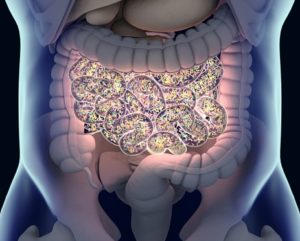Researchers of a study examined whether early-life diet quality and food intake frequencies are linked to the subsequent development of inflammatory bowel disease (IBD). Using data from two large cohort studies in Scandinavia, researchers assessed diet quality using a Healthy Eating Index and food intake frequencies via prospectively recorded questionnaires at 1 and 3 years of age. IBD cases were identified through national patient registers, and Cox regression analysis was conducted, adjusting for various factors. During over 1.3 million person-years of follow-up involving 81,280 participants, 307 were diagnosed with IBD. High diet quality at 1 year of age was associated with a reduced risk of IBD, with higher fish intake also showing a protective effect, particularly against ulcerative colitis. Conversely, sugar-sweetened beverage consumption was linked to an increased risk of IBD.
The findings suggest that early-life dietary patterns play a role in the development of IBD. However, diet quality at 3 years of age did not show an association with IBD risk. These results highlight the potential importance of early dietary interventions in reducing the risk of IBD later in life.
Reference: Guo A, Ludvigsson J, Brantsæter AL, et al. Early-life diet and risk of inflammatory bowel disease: a pooled study in two Scandinavian birth cohorts. Gut. 2024;73(4):590-600. doi: 10.1136/gutjnl-2023-330971.
Link: https://gut.bmj.com/content/early/2024/01/02/gutjnl-2023-330971









